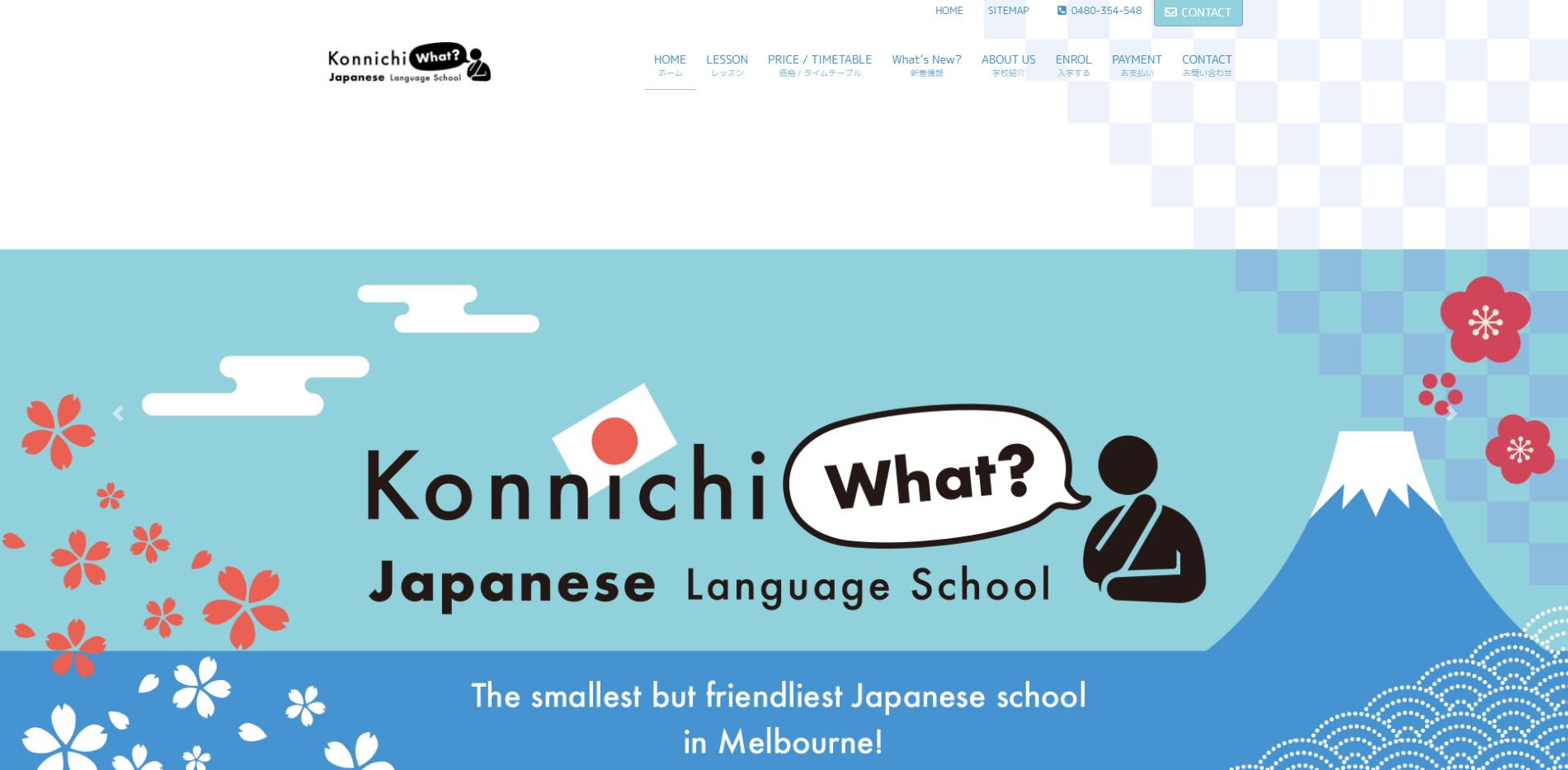Choosing a school for your children can be one of the most important decisions that you make as a parent. If you are looking for a Japanese school in Melbourne, then you have come to the right place.
We will share with you the Top 20 Japanese Schools In Melbourne. We hope that this information will help make your decision easier. Thank you for reading!
Ultimate List of Top Japanese Schools in Melbourne
Nunawading Japanese School Melbourne
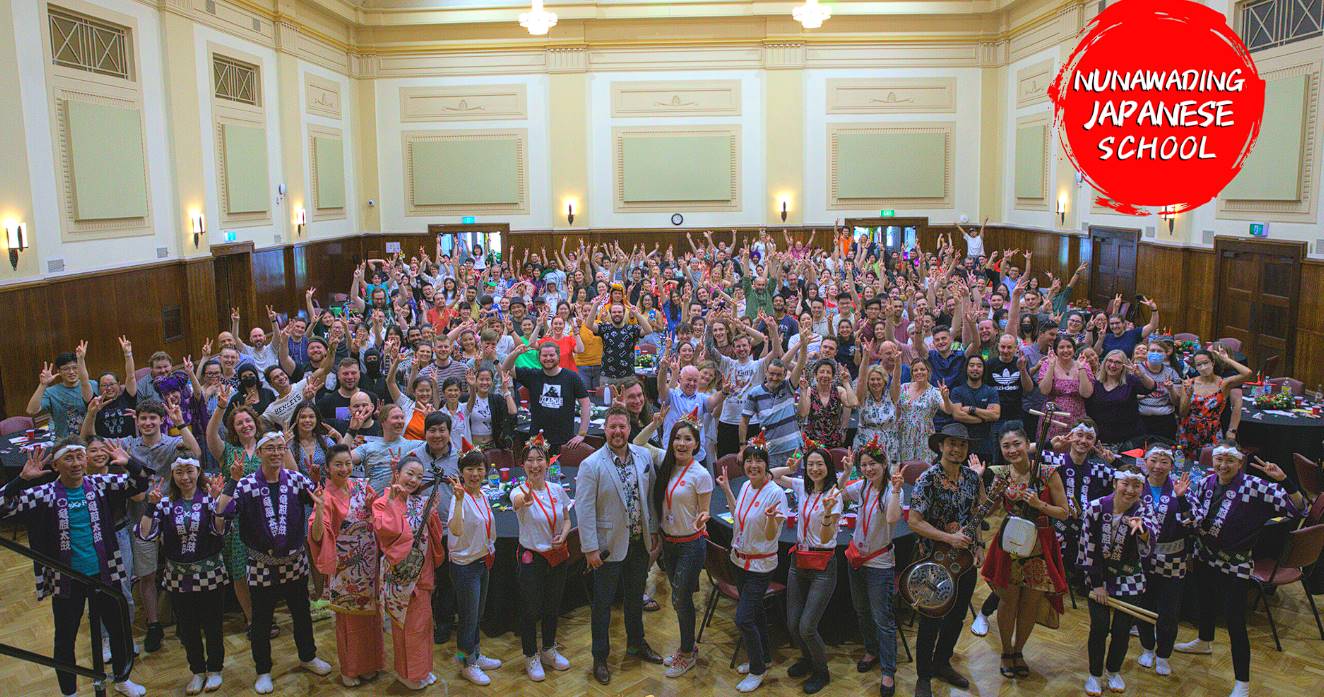
Website: www.japanesetutormelbourne.com.au
Enquiries: 0421 234 951
Address: 8-10 Wood Street, Nunawading Vic 3131
Nunawading Japanese School is a Japanese school located in Melbourne, Australia. Since 2013 they have been providing fun, engaging Japanese courses for adults wanting to learn to speak, read and write Japanese. Face to face (onsite) classes are available for Melbourne students. They also facilitate online Japanese classes for students across Australia (Melbourne, Sydney, Brisbane, Perth, Adelaide & Hobart) and Japan.
Over the years they have developed their own unique curriculum with original teaching method. Their teachers are all ‘native’ Japanese who live and teach from Melbourne. Their reputation has grown to be one of the best places to learn Japanese in Australia.
Japanese Classes - www.japanesetutormelbourne.com.au/japanese-classes-melbourne/
Dandenong High School - Japanese School Melbourne
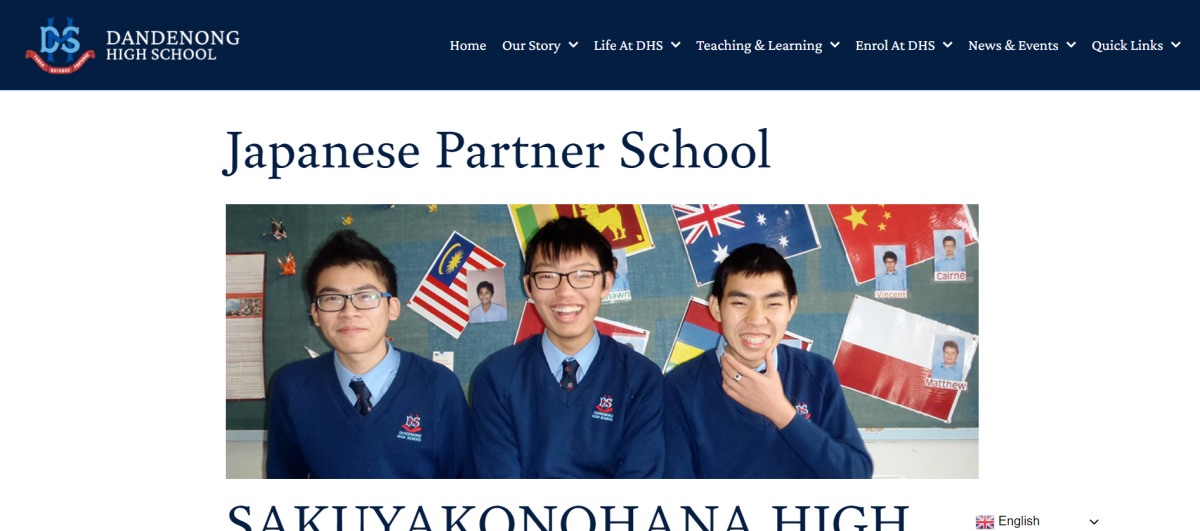
03 9792 0563
Students were temporarily housed in the local Fire Station, Temperance Hall, and Church of Christ when the school opened as a result of the diligent efforts of a group of leading residents engaging education officials. The foundation stone was laid in November 1919, and the permanent and significant two-story red brick structure was completed by 1920. Almost immediately, the increased student population meant that the facilities were insufficient, necessitating fast additions.
Japanese Melbourne Language School
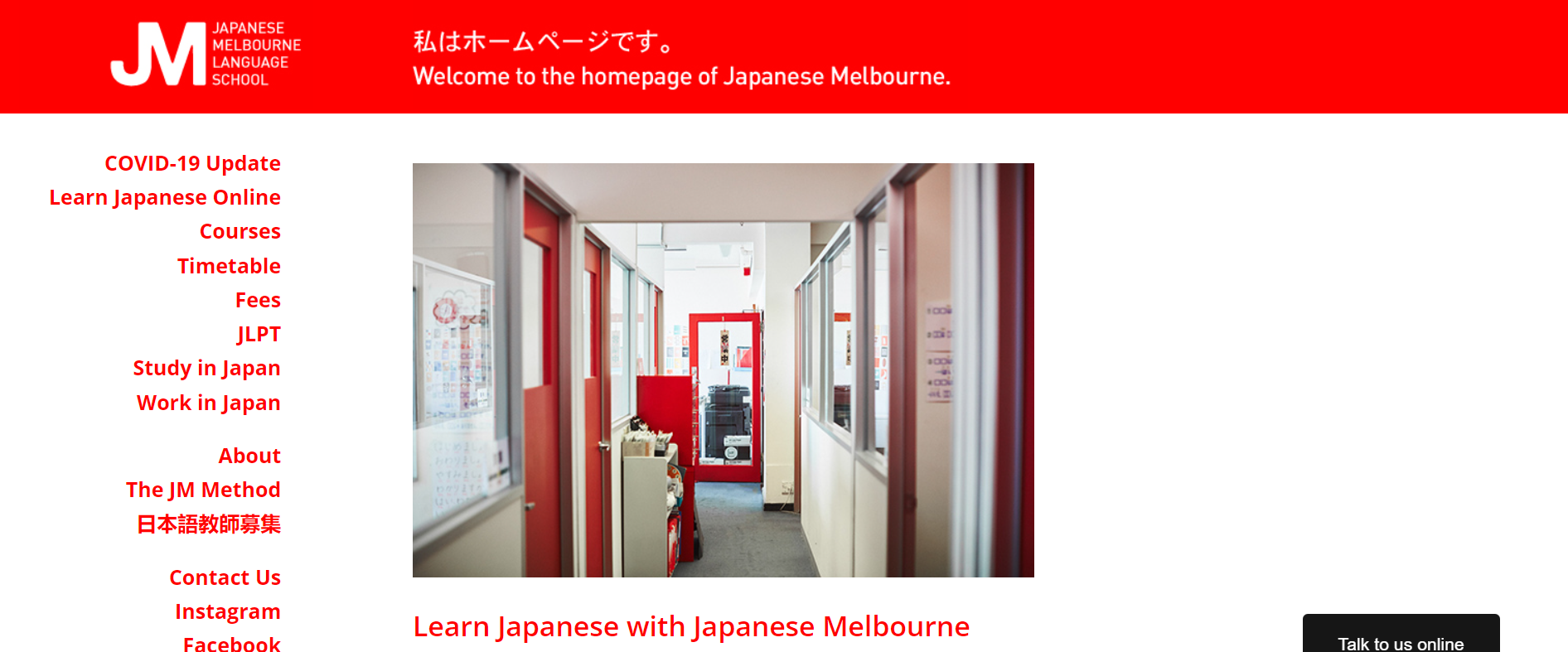
japanesemelbourne.com.au
0430 103 600
Our former students have included ATO managers, television newscasters, regional artists, town council members, Apple geniuses, families making their first trip to Japan, software engineers, photographers, primary school teachers.
The Japanese School of Melbourne
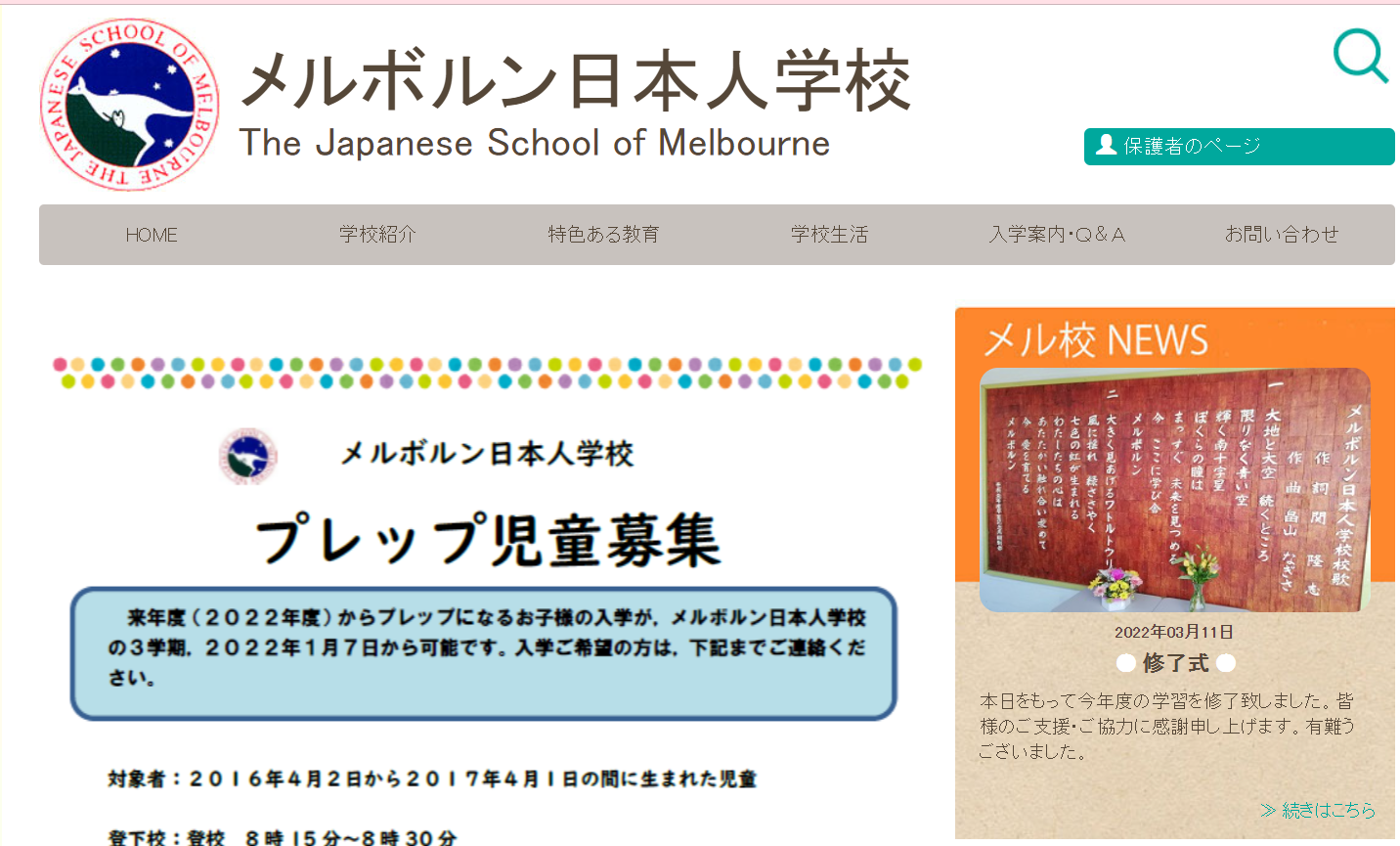
03 9528 1945
Melbourne, the capital of Victoria, is Australia's second-largest city after Sydney and is regarded to be the most livable city in the world. It is located in the southeastern section of the Australian continent.
The Japanese School of Melbourne situated in Caulfield, 10 kilometers southeast of the city center, in a peaceful residential area with a rich natural environment, next to the park (Princes Park). We will encourage education that cherishes each and every kid, with daily teachings as the foundation of school management.
Frequently Asked Questions
The place of the Japanese language in Australian education
Japanese has been taught in Australia for more than 100 years and is widely taught as a second language in Australian schools.
Japanese language and culture courses at Australian Universities include:
- WA. Curtin University. University of Western Australia.
- QLD. University of Queensland.
- NSW. University of Newcastle.
- ACT. Australian National University (ANU)
- VIC. University of Melbourne.
- SA. Flinders University.
- TAS. University of Tasmania (UTAS)
The Japanese population is located throughout the Melbourne area, with many temporary Japanese residents living in middle-class suburbs. As of 2007 many high income Japanese live in Melbourne-area middle class suburbs, such as Brighton and Camberwell.
As of October 2019, more than 20 thousand Japanese residents were registered in the Melbourne metropolitan area. In the same year, Australia was one of the countries with the highest number of Japanese residents.
Unlike Australia, Japan is a hierarchical society. A different language is used for addressing people of different status. When addressing people of higher status, Japanese use a more formal language that includes different words and honorifics.
Victorian School of Languages - Japanese School Melbourne
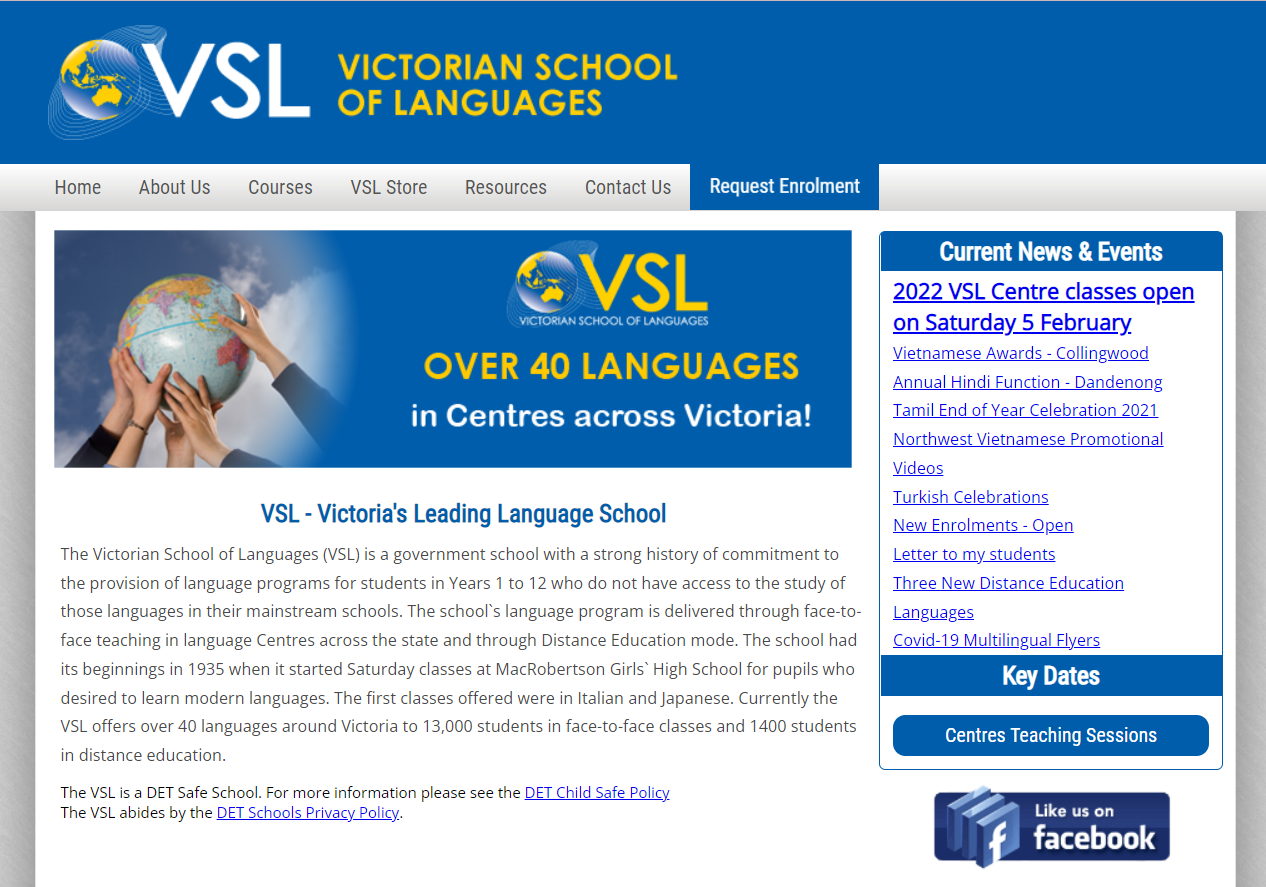
03 9474 0502
The school's language program is delivered in person at language centers throughout the state, as well as via distance education.
The institution has a long history of teaching languages to members of the community. The institution began in 1935, when it began Saturday lessons at MacRoberston Girls' High School for students who wanted to acquire modern languages. The first languages taught were Italian and Japanese.
The Victorian Institution is a government institution dedicated to providing language programs for children in Years 1 through 12 who are unable to access language studies in their mainstream schools. The uni's linguistic program is taught throughout the state in both traditional classroom settings and online learning environments.
Centre for Adult Education - Japanese School Melbourne
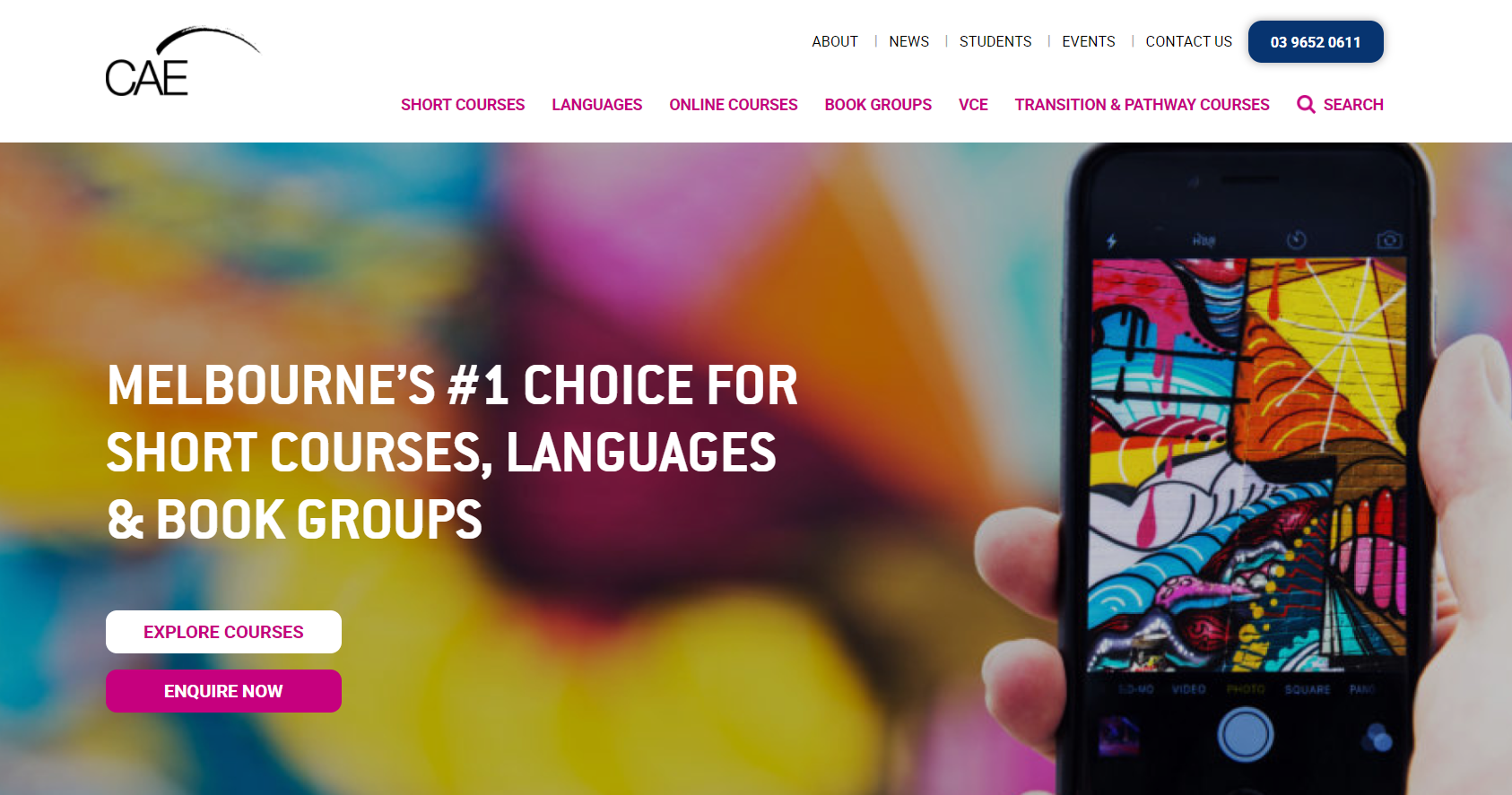
03 9652 0616
Since 1947, the CAE has been providing learning to the Victorian community through a variety of programs and services, adapting to meet the ever-changing needs of adult learners. CAE offers accredited courses to assist adults in completing their secondary education and beginning or changing their career path, as well as a regular calendar of fun and short educational courses.
In 2003, the names 'Council' and 'Adult' were deemed inappropriate because they did not accurately reflect the organization. The existing name had institutional and formal connotations and did not include all students, both young and old. The organization officially changed its name to CAE on July 5, 2003.
The activities provided by the CAE have evolved over time. Activities in 1947 included traveling theatre, drama, dance, music, art exhibits, book clubs, and a variety of other courses and classes. The CAE now providev
Konnichiwhat Japanese Language School Melbourne
konnichiwhat.com.au
0480 354 577
Konnichiwa! Hello and a big thanks for visiting KonnichiWhat! I've always been fascinated by languages. I earned a degree in Japanese language, literature, and education, as well as a Japanese teaching certificate, in Tokyo. I've had incredible opportunities to teach Japanese at a language institute, a local high school, and a variety of businesses since moving to Australia. I am also a trainer for the Teaching Japanese as a Second Language course, and I have seen several Japanese teachers advance and develop.
Our goal is to connect learners with others who are facing similar challenges and motivations. It's always fun to pass on your knowledge to others! Traveling to Japan, watching anime, or simply having fun... Whatever your reason, you are always welcome!
Oak Park - Japanese School Melbourne
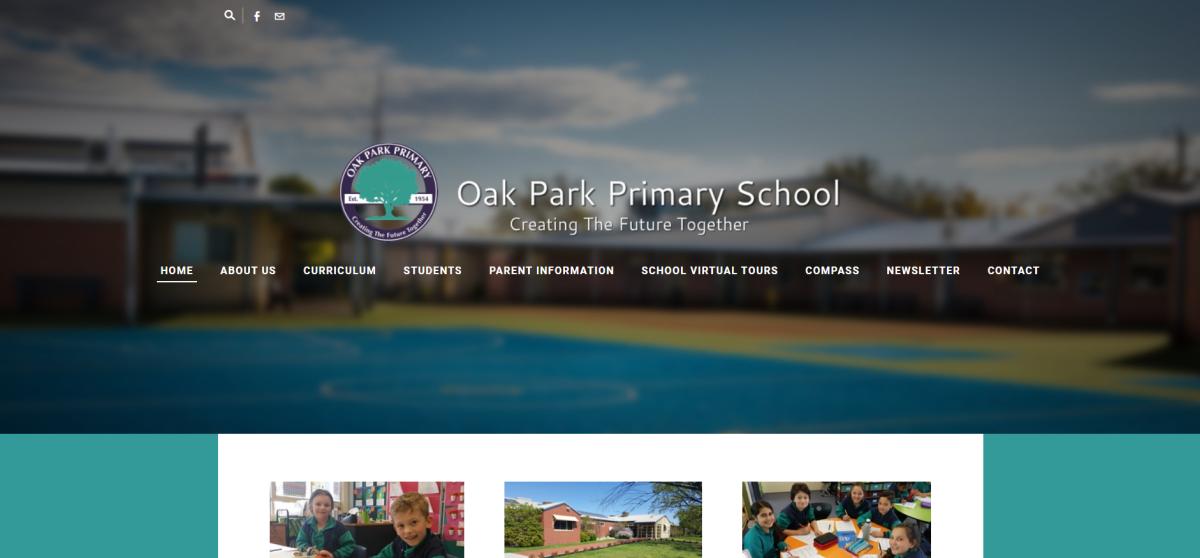
(03) 9306 9181
Oak Park Primary School is situated in Moreland, close to the border with Moonee Valley. The school has a maximum enrollment of 400 kids, however it presently has 415. The first school buildings were built in 1954. The first stage of the school's overall reconstruction was finished in 2004. The rest of the old school was dismantled in 2006, and Stage 2 was finished in September 2007.
During the next School Strategic Planning period, the school hopes to improve student outcomes in English and Mathematics, empower students to take responsibility for their own learning, and strengthen our PLC structures.
JAPANEASY Japanese Language & Culture School Melbourne
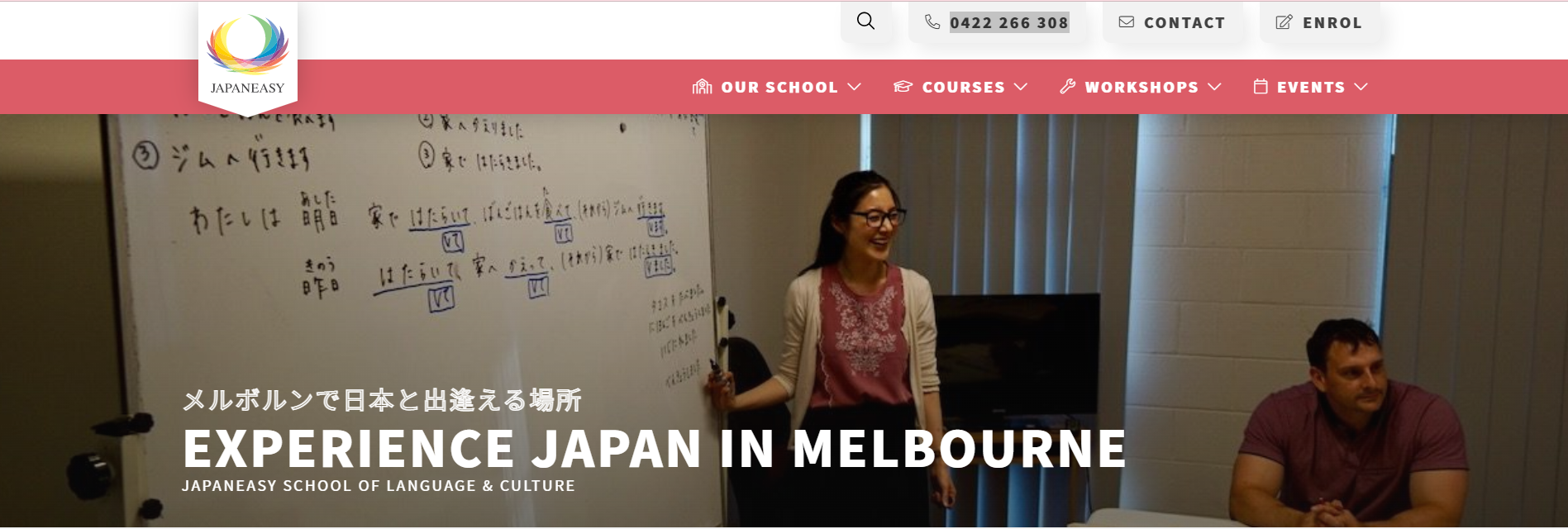
japaneasy.com.au
0422 266 374
EXPERIENCE JAPAN IN MELBOURNE
People hang out, return, and others pay visits. Teachers and students greet each other as if they were family. Everyday folks learn the Japanese language and culture while having fun. We'd like to thank everyone who helped us start this school back in 2008, as well as everyone who has been there for us along the way, sharing and caring with lots of smiles.
When you join JAPANEASY, you become a member of our family as well! We are so proud of the passionate, positive atmosphere that has existed since the beginning.
Our group sessions provide a small, pleasant, and engaging environment to help you learn. Through activities and group practice, you will get to know your teacher and classmates well. After a term concludes, the majority of groups will progress to the next level on the same day and time, with similar group members.
Melbourne International School of Japanese Inc.
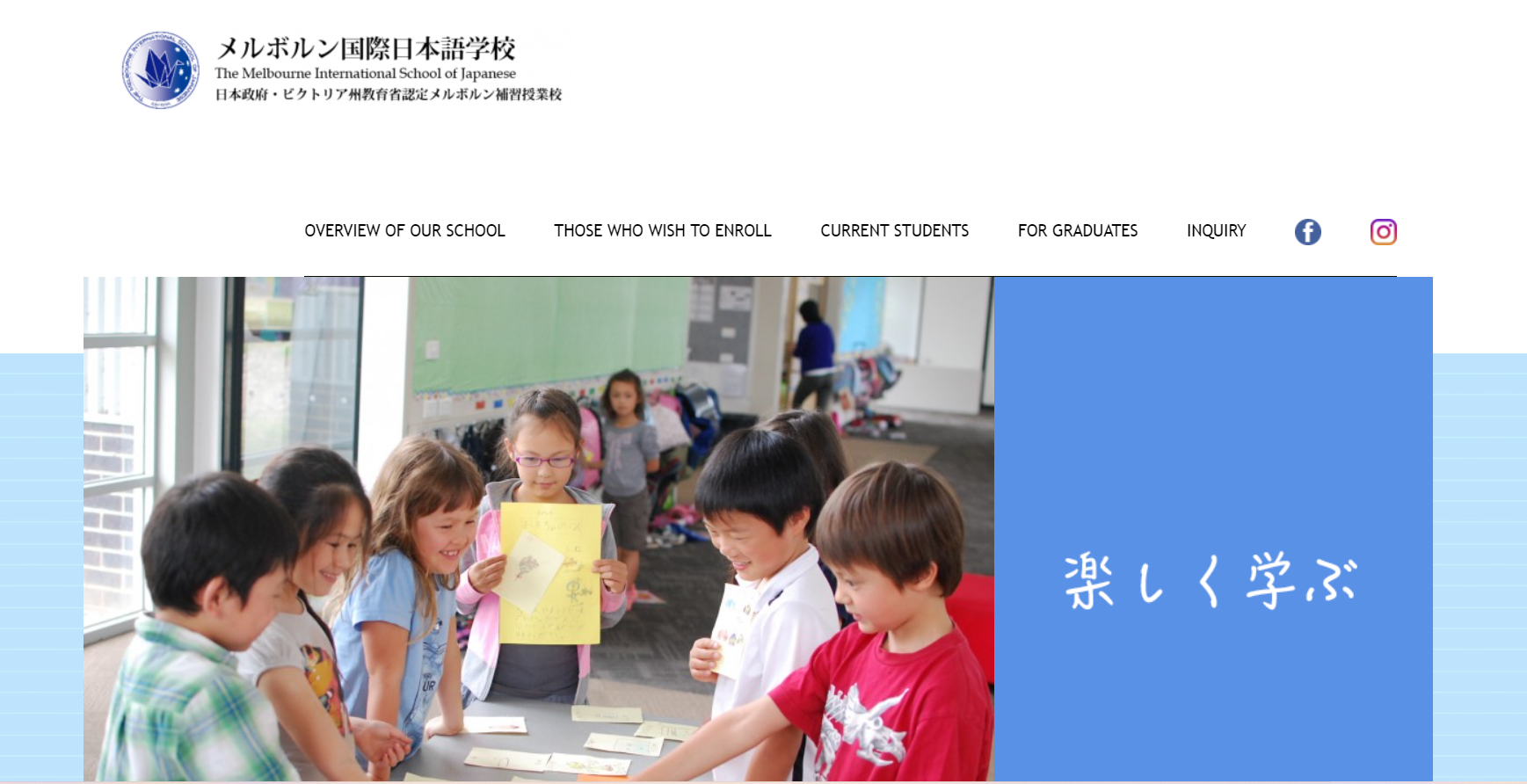
0425 881 641
WELCOME TO MELBOURNE INTERNATIONAL JAPANESE LANGUAGE SCHOOL
The Melbourne International Japanese Language School was founded in 1986 by parents who were eager to help their children learn and maintain the Japanese language and culture in order to educate Japanese children.
In the 33 years since then, the excitement and ideas have not altered, and the steering committee, comprised of representative parents, governs the school alongside the managers and supports school events. The school is supported by the teachers and staff who strive to deliver high-quality Japanese language education.
Our school is a multicultural school that gives children the opportunity to experience and learn the Japanese language and culture while living in Melbourne, Australia, which is home to many ethnic groups. As you are aware, language acquisition necessitates continuous learning, and Saturday classes are insufficient, so home support is critical to language acquisition. As a result, parental understanding and cooperation are critical to our education.
Vocational Language Learning Centre

03 9602 1631
VLLC is a language school with a twist. Our staff offers students a personalized approach, employing a holistic paradigm to facilitate the acquisition of second languages through picture-sound association. Students are taught from the start to 'think in their new language,' rather than translating back to their mother tongue. There is also a considerable emphasis on pronunciation so that pupils sound like native speakers when speaking their new language.
The VLLC staff wants students to succeed. Our student coordinators keep track of all student programs to ensure that students stay on track and achieve the results they desire.
Melbourne Grammar School - Japanese School Melbourne
03 9865 7573
We believe in young people's intellectual, physical, emotional, psychological, social, and spiritual development. Ours is an inclusive, community-focused culture that recognizes and celebrates both student effort and achievement.
Our culture is further enriched by an engaged network of staff and parents, our alumni's knowledge and experience, and the breadth of our connections with the larger communities around us.
Boys can learn about new cultures and improve their language skills by studying languages. Students who learn a second language can compare and reference across cultures to better understand how language works and how it shapes and reflects experience and identity. Students develop intercultural awareness as they discover how effective communication necessitates the learner taking risks and venturing outside of the norms, practices, and acquired behaviors of their first language.
Caulfield Primary School - Japanese School Melbourne
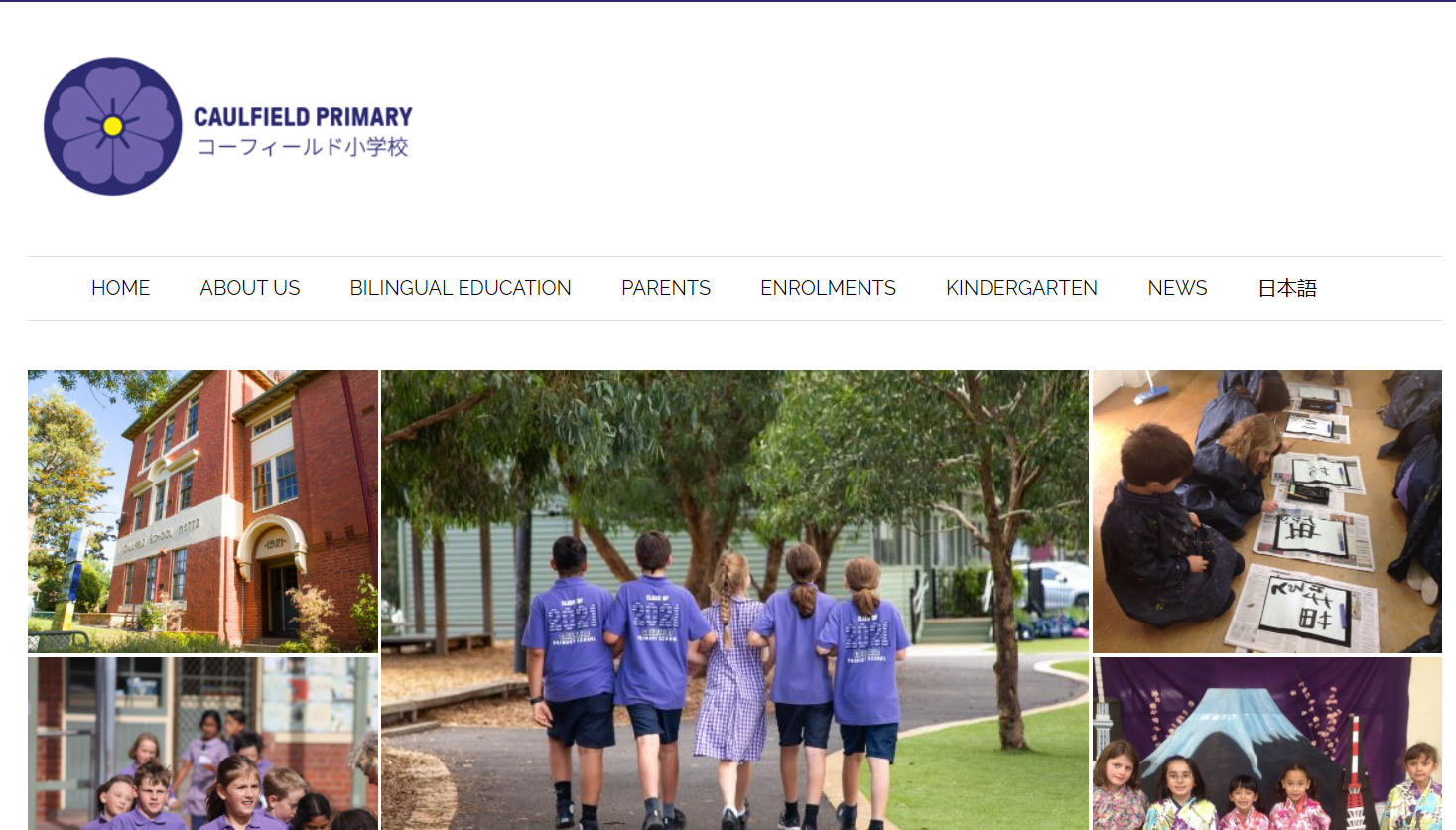
03 9523 7934
I am extremely proud to be the Principal of a school with a long history of supporting and developing our children's academic, social, and emotional needs.
We are one of only eleven bilingual schools in Victoria, and we have successfully blended this one-of-a-kind educational method with a commitment to academic performance, which is underpinned by a holistic approach to student well-being and engagement.
Our School Values encapsulate our educational philosophy. We strive for excellence, respect, responsibility, honesty, kindness, and diversity as a team. We are committed to providing our students with unique, engaging learning opportunities on a daily basis in order to help them become active, global citizens.
Monash Japanese Language Education Centre
03 9902 6033
For Japanese teachers in Victoria, South Australia, and Tasmania, the Center provides a variety of events and programs. These initiatives and plans are intended to raise teaching standards, create better instructional resources, and support teachers in their professional development.
Listen & Learn Australia
listenandlearnaustralia.com.au
03 8652 1330
Our Japanese speakers, who are fully qualified to teach their native language, can train you and, if necessary, the rest of your group at a time convenient for you, at your home or workplace. Sessions can take place on any day of the week, including weekends, and at any time of day, whether morning, afternoon, or evening. If your home or office is unavailable due to unforeseen circumstances, classes can be held at your trainer's office. You will be given resources for the lesson.
Japanese can be a difficult language to learn, particularly for English speakers. It not only has a completely different writing system, but it also has complex pronunciation and a grammar system that bears no resemblance to English. But don't be concerned! When you study Japanese with us at Listen & Learn, you will achieve fluency quickly while also having fun! Because our native-speaking instructors are adaptable, they will design a Japanese online course that takes your needs and preferences into account.
The Japanese Saturday College of Melbourne Inc.
JSC-mel.com
inquiry@jsc-mel.com
Every Saturday, Melbourne Supplementary School teaches children Japanese and math (math) using Japanese textbooks. The kindergarten program follows a Japanese curriculum.
The Melbourne Supplementary School, Melbourne's second supplementary school, opened in April 2011 to provide a place for waiting-list children and students living in Melbourne to study textbooks.
Our school is a non-profit school corporation licensed by the Australian Government and is funded by the Australian Government, the Japanese Government, and the Overseas Child Education Promotion Foundation. To overcome the difficulty of both temporary and permanent residents studying textbooks, our school offers classes based on the purpose of the national language beginning in the fourth grade of elementary school to provide education based on needs.
The kindergarten incorporates various activities in a well-balanced manner within the limited time only on Saturdays, taking into account the five areas of kindergarten education in Japan (health, relationships, environment, language, expression).

